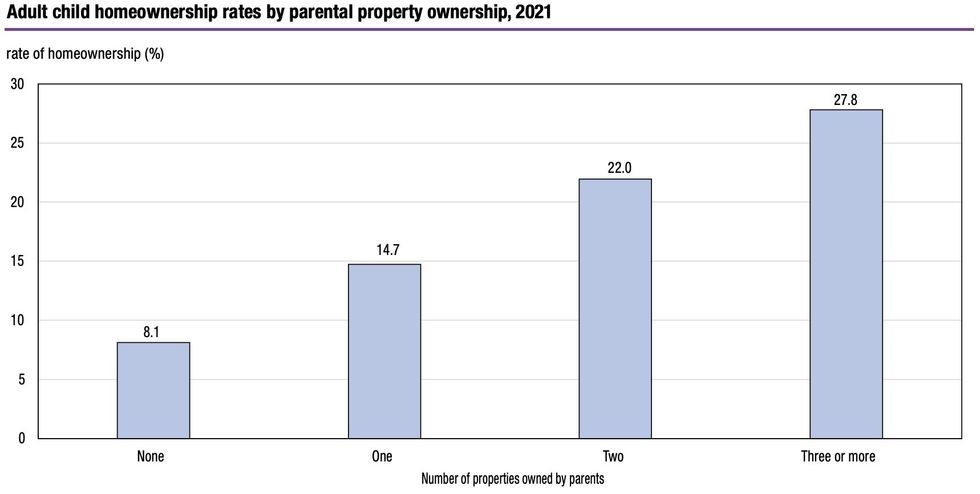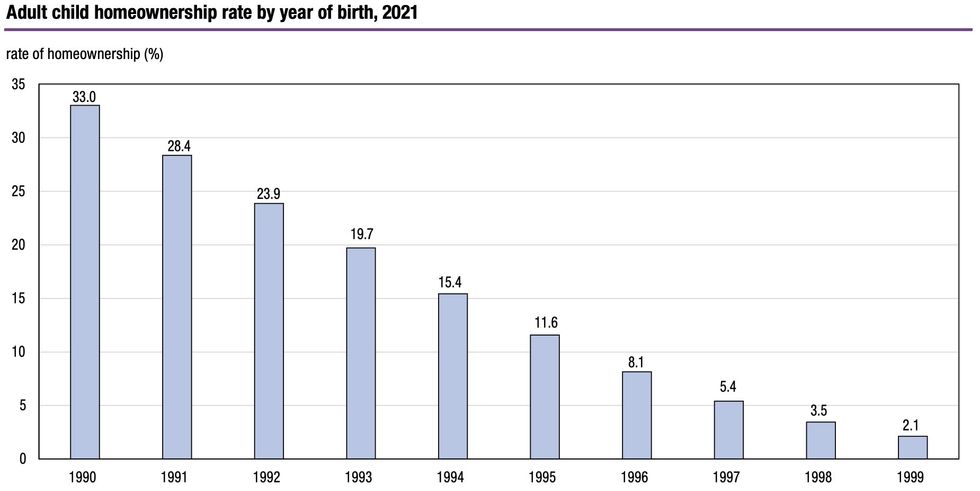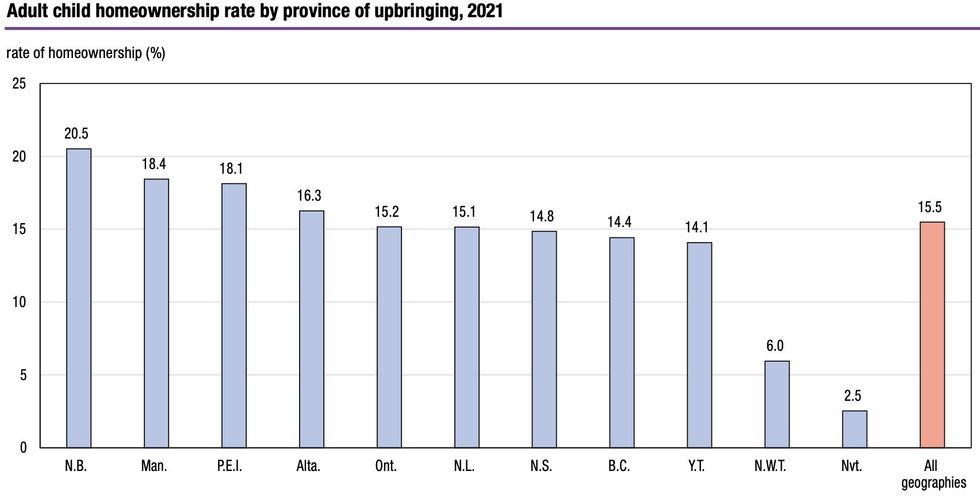You’re more than twice as likely to own a home if your parents do too.
The rate of homeownership amongst Canadians born in the 1990s whose parents own a home was 17.4% in 2021, but just 8.1% amongst those whose parents don’t own property.
The finding is courtesy of a new report from Statistics Canada, which examined homeownership rates based on age, income, and province.
While the report found variations across all three factors, the most significant determinant of one’s ability to own a home was whether or not their parents did as well.
For those whose parent’s own multiple properties, their ownership rate jumped to 23.8%, revealing a link between "parents’ housing wealth" and their kids’ ability to own an abode of their own.
"The analysis establishes a robust positive relationship between parents’ property ownership and the likelihood of homeownership for their adult children, even when controlling for income, age, and province of residence," the report reads.
"Inequality of homeownership appears to be reproduced across generations as parents’ property ownership conveys significant financial advantages to their children."

When accounting for young adult’s income levels, there was a "significant difference" between those who do and do not own a home — the average income of homeowners was $65,000, while those those who don’t own property had an average income of $36,000.
Average incomes were higher by about $6,000 for those whose parents owned multiple properties. Even if adult children weren’t homeowners themselves, they earned more money if their parents owned a home.
Amongst those who earned less than $40,000, their homeownership rate rose from 8.5% if their parents didn’t own a home to 26.7% if they owned three or more properties, higher than the ownership rate (21.0%) of those who earned between $40,000 and $80,000 but whose parent’s didn’t own property.
"The income of adult children may be correlated to the income and wealth (including property ownership) of their parents, in part because of patterns of childhood socialization, existing social networks, and the amounts invested in education," StatCan said.
The likelihood of owning a home grows as you approach your 30s, the report found. Canadians born in 1990 — who were 31 years old in 2021 — had an ownership rate of 33.0%, nearly twice that of those born in 1994, who, at age 27, had an ownership rate of 15.4%. Those born in 1999 — aged 21 — had an ownership rate of just 2.1%.
The pattern is to be expected because, as StatCan noted, the older age group has spent more time working, has had more time to save, has higher rates of cohabitation, and has a higher average level of education.

Based on geography, young adults who grew up in New Brunswick had the highest homeownership rate, at 20.5%, followed by Manitoba (18.4%) and Prince Edward Island (18.1%). At 14.4%, those reared in British Columbia had the lowest homeownership rate amongst the provinces.

Regardless of their location, though, parents’ property ownership was "strongly associated" with an increased likelihood of homeownership for their adult children. This "positive relationship" reflects, in part, the greater amount of wealth that homeowners can transfer to their children — the so-called "bank of mom and dad" that Canadians are increasingly forced to draw from as housing affordability worsens.





















